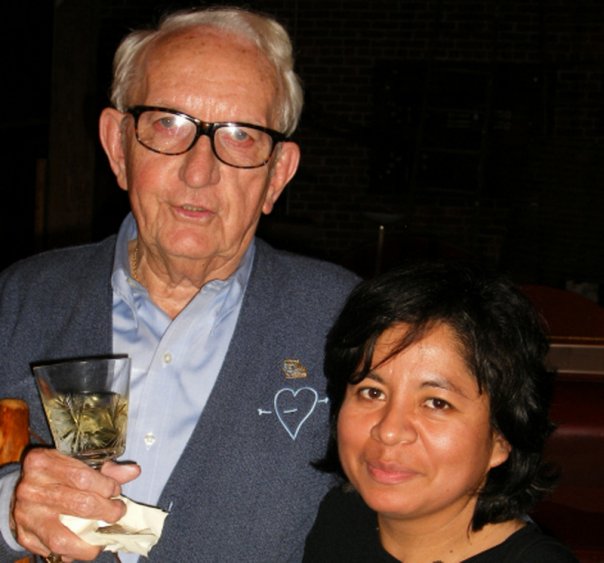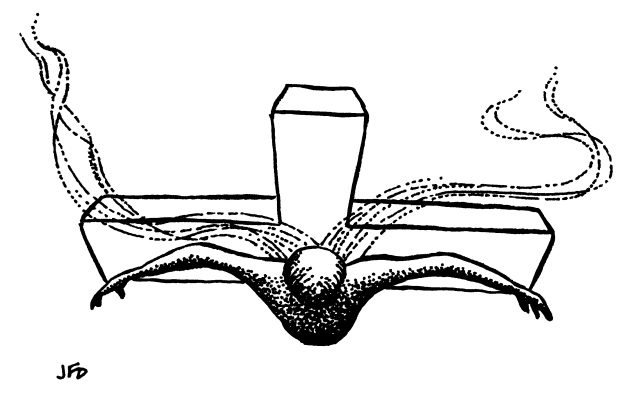WASHINGTON (CNS) – I’m convinced that around the country, and perhaps the world, there are many letters similar to the one I received in the mail some 18 years ago. It was written by hand and it ended with a heart and an arrow through it.
I was stunned by the sender: John C. Quinn. I was a cub reporter at a small newspaper then, tending to nighttime fires, crimes and local community meetings that no veteran reporters wanted to cover. I couldn’t believe I was getting letters from someone who was a legend in my field.
A couple of years before, I’d been the recipient of a scholarship Mr. Quinn and his wife, Loie, had established in memory of their oldest son John “Chips” Quinn Jr., who took after his father, one of the founding editors of USA Today, and, less importantly, the sender of my letters. Chips worked as a newspaper editor in Poughkeepsie, New York. He died in 1990 and in the wake of his death following an automobile accident, the family established, not just a scholarship, but a program called the Chips Quinn Scholars to help minority journalists like me work and stay in newsrooms so we could tell an accurate story of disadvantaged communities throughout the U.S. that often was left out.

Organizers told us at orientation that it marked the beginning, not just of a career in journalism, but the induction into a family. It should have been no surprise then that through the years, John Quinn, and those who ran the program, regularly kept tabs on us because they knew the road for minority journalists wasn’t — and still isn’t — an easy one.
They listened to our tales of isolation in newsrooms, lack of opportunities, struggles with editors, management, with other reporters, with family, but also of breakthroughs, breakups, promotions and personal celebrations. They didn’t just provide a friendly ear but also gave solutions, helping us with mentors, training, and continuing education so there wouldn’t be an excuse not to hire or promote us.
Mr. Quinn’s role was largely as a cheerleader. He celebrated our achievements as if they were his own or his children’s. To the Chips Quinn Scholars, he rarely mentioned his legendary role in journalism, which included president of Gannett News Service, vice president of news at Gannett, the largest newspaper chain the country, and the deputy chairman of the Freedom Forum, which later established Washington’s Newseum.
Instead, he listened and smiled, and he constantly reminded us that even on a bad day, “journalism is the most fun you can have with your clothes on,” or told us in his best Latin not to “let the bastards get you down.” There were — and still are — many days, when those words help inside a newsroom. But now many of us will have to look for comfort elsewhere. That’s because John Quinn died July 11 after being ill for some time.

I hope he’s not angry because I buried the lede, as we say in journalism when someone puts the most important part of the story late in the game. But, for me, the most important part of his story, is about the example he set as a Catholic.
One summer, he invited a group of us to his family homestead in a small village in Rhode Island called Carolina, on the grounds of what had been a derelict textile mill near where his Irish ancestors once had lived. After purchasing the property, the Quinn family gave it a makeover, keeping its historical integrity intact.
During the visit, some of us went to visit the grave of his late wife, Loie, a former nurse, who died in 2005, and then to the church where they worshipped. That’s when I found out we shared the same faith. Much of what he did and spoke to us about was rooted in the Gospel — except he used different words since those in the program came from a variety of religious traditions and some had none.
He spoke of helping those who needed it the most, not just in the communities we covered for our news organizations, but also in making sure that as we took a step forward professionally, we extend a hand to others. He told us to “care, care, care,” about our work and about others, quoting his son Chips, and not just talk about it but to show it. It was no surprise then that in what was then a cutthroat world of newspapers, Mr. Quinn often was referred to as the “conscience.”
I often think of him and his family during Mass, or when I have to write about a tough topic involving people that certain members of society try to cast out, or when I hear certain Scriptures about helping others. During a visit to Assisi, Italy, some years ago, I remembered Mr. Quinn during a lecture about St. Francis and the poor, and requested a Mass for his beloved Loie at the basilica where the saint is buried. I sent him a copy of the request by mail and later received yet another letter, this one written on an old typewriter, and I knew that he’d probably carefully place the Mass request in a type of shrine he made of the gifts received from his beloved “Chipsters,” as the scholars are known.
There are many struggling with his death at the moment. I’ve read many messages of sadness the last few days. But I also know that he left an example for me and others as a fellow Catholic. He was a Catholic by his actions, not his words, inclusive, and faithful to God in the way he loved and served, the way he sought justice and truth, the way he worked, and in his heroic efforts to level an unfair playing field for others.
Though he’s gone, many of us still have his letters where we still can find his wisdom, his example, his sense of humor and kindness, a mission that still is far from over, but most importantly his love. I’ve heard people say: “He cared about me when others didn’t.” Yes, he towered in journalism and corporate titles and honors, but he never let it go to his head. No matter how small and insignificant you felt, he made you feel as if you belonged with the best.

Love was his biggest gift and accomplishment. I can still hear his voice supporting us during rough moments, gently reminding us, “the least of these” in many newsrooms, of something his wife often said: “A hug is the perfect gift; one size fits all and no one minds if you exchange it.”















